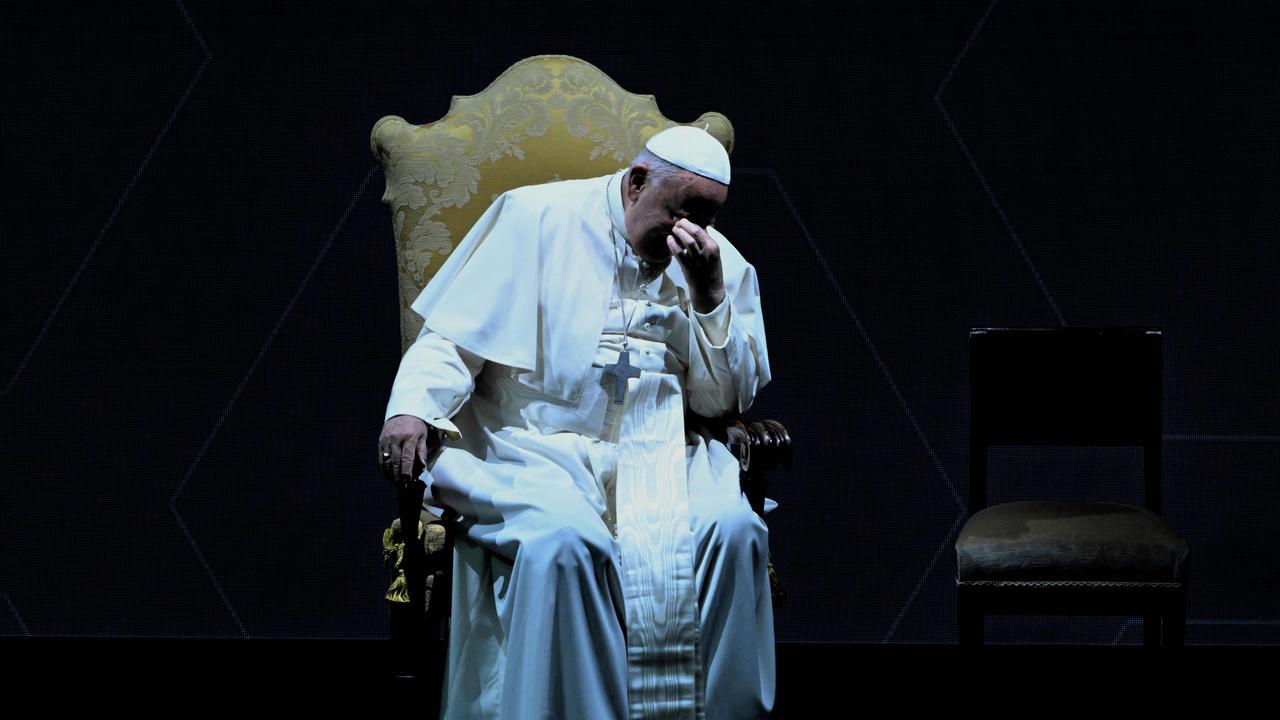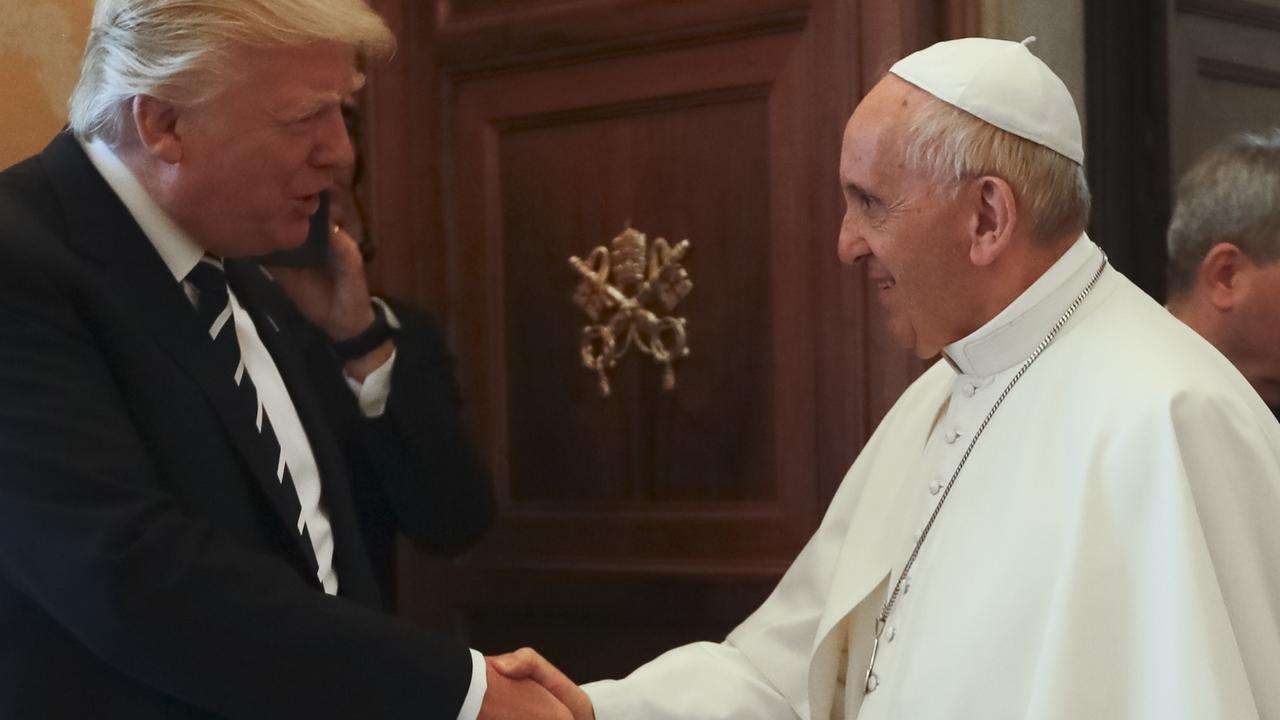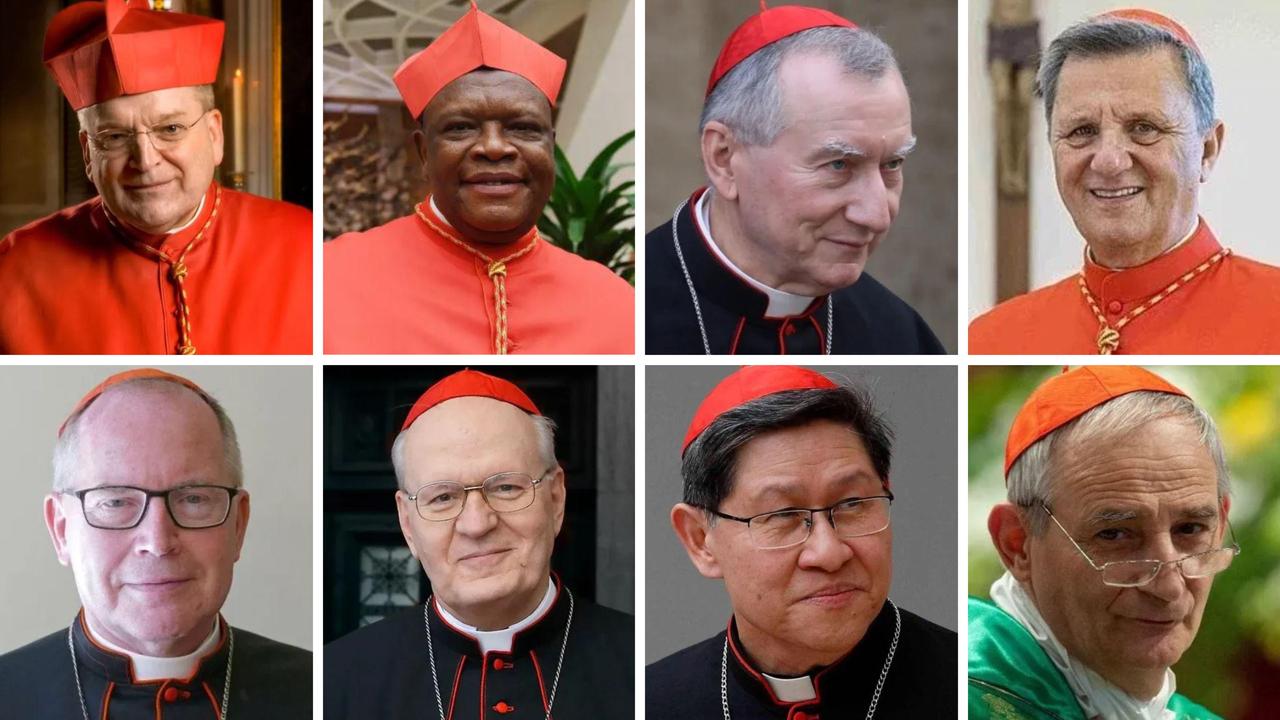Russia is winning the war in Ukraine
Despite the outpouring of support for Ukraine from around the world, the harsh reality is that Russia is winning the war.
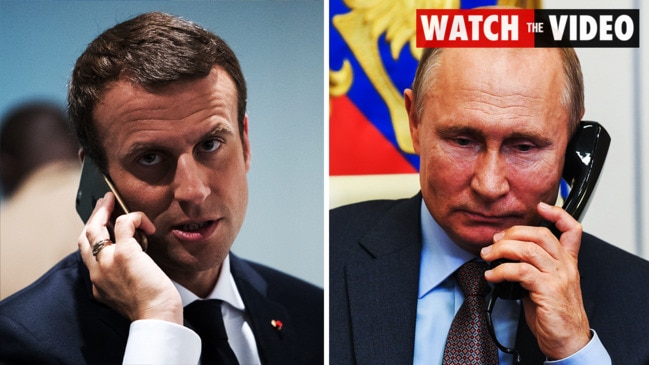
Eight days into the Ukraine conflict, things may not be going exactly according to plan for Russia, but when it comes to the ground war, they are still winning.
The stronger than expected resistance of the Ukrainian people led by President Volodymyr Zelensky may have raised hopes of a Russian defeat and slowed the incoming forces – but Russia is still making headway.
This is despite the vast majority of the international community rallying behind the determined Ukrainians and their social media savvy government since Russia invaded on February 24.
The move has made Russia a global outcast in the worlds of finance, diplomacy, sport and culture. The rouble has gone into free fall, and sweeping sanctions have seen oligarchs and their families who surround Russian President Vladimir Putin slapped with travel bans and their assets – including superyachts – seized.
Countries around the world, including Australia, are donating military equipment, and support for the Ukrainians has swelled, partly thanks to Mr Zelensky’s defiant social media posts in the face of the overwhelming fire power of Russia’s military.
That fire power has still to be fully unleashed and while the Ukrainians have put up a greater-than expected resistance – something that will not make it easy for the Russians to claim victory – the Russians have continued their relentless incursion into the country.
A week after the offensive began, Russian troops seized Kherson, the first major city to fall.
The Black Sea port city of 290,000 people was toppled on Thursday after a three-day siege that left it short of food and medicine.
Kherson, reportedly today. Heavy Russian armoured presence. It is like a tank highway even pic.twitter.com/U9q69LmG9z
— Ragıp Soylu (@ragipsoylu) March 2, 2022
Russian troops are also pressuring another port city – Mariupol east of Kherson – which is without water or electricity in the depths of winter.
“They are trying to create a blockade here, just like in Leningrad,” Mariupol mayor Vadym Boichenko said, referring to the brutal Nazi siege of Russia’s second city, now renamed Saint Petersburg.
There were fears hundreds may be dead after “more than 15 hours” of continuous shelling on the city.
Deputy Mayor Sergei Orlov told BBC on Thursday one district, normally home to 130,000 people including his father, has been “nearly totally destroyed”.
Horrible reports from dep mayor of #Mariupol: “Residential areas heavily bombed. The situation is awful, we are near to a humanitarian catastrophe. We have been under more than 15h of continuous shelling without pause."
— Daniele Palumbo (@Danict89) March 3, 2022
And this is still ongoing right now #Ukraine#BreakingNewspic.twitter.com/7Qzi8uXm3y
“We cannot count the number of victims there, but we believe at least hundreds of people are dead. We cannot go in to retrieve the bodies,” he said.
“The Russian army is working through all their weapons here – artillery, multiple rocket launch systems, aeroplanes, tactical rockets. They are trying to destroy the city,” Mr Orlov said.
Drone images of the devastation in Borodyanka, 50km from capital Kyiv, have also emerged after Russian air strikes battered the city.
The Reuters agency filmed from a drone how Borodyanka looks like after Russian shellings for several days. It is a village in the Kyiv region.#StandWithUkraineï¸pic.twitter.com/NEIxVQ1IrU
— Oleksandra Matviichuk (@avalaina) March 3, 2022
In the northern city of Chernihiv, 33 people died on Thursday when Russian forces hit residential areas, including schools and a high-rise apartment block.
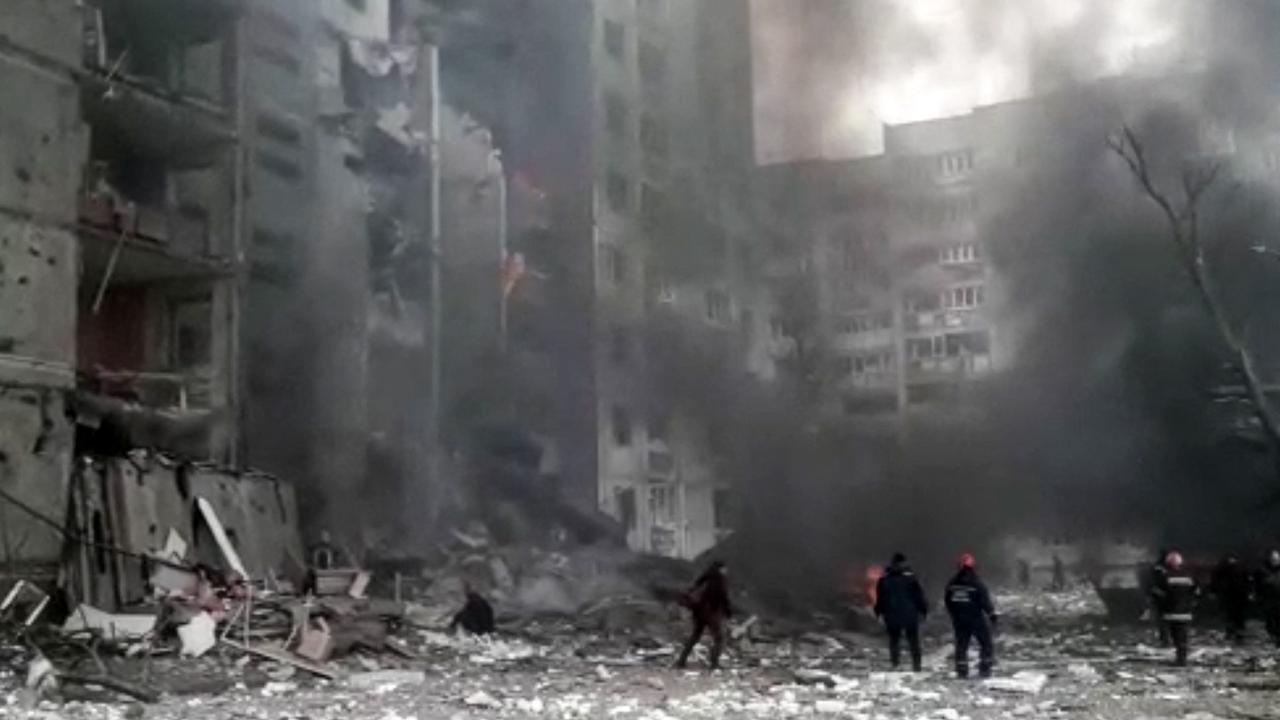
Video verified by The New York Times shows the bombardment of Chernihiv, Ukraine, on Thursday. As smoke cleared from the attack — which hit near apartments, pharmacies and a hospital — people are seen running in the street.https://t.co/J1MhFcNCnmpic.twitter.com/S2l2MBkxaF
— The New York Times (@nytimes) March 3, 2022
And Ukrainian authorities said residential areas in the eastern city of Kharkiv had been “pounded all night” by indiscriminate shelling, which United Nations prosecutors are investigating as a possible war crime.
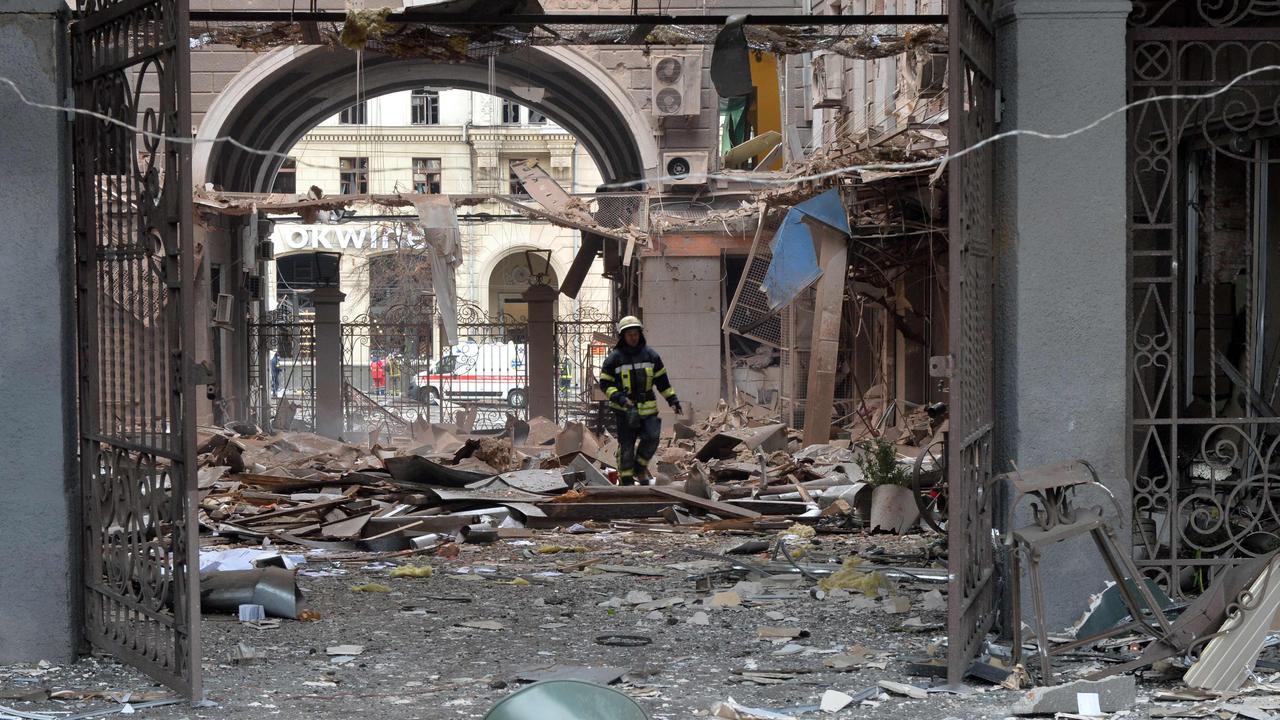
There were also ominous signs for Kyiv, where a long Russian military convoy has been approaching for days, although it appears to have stalled north of the city.
Whether the Russian gains can be sustained is another question, with experts suggesting the strong opposition to Mr Putin’s invasion indicate it will be a long and drawn-out conflict, with any Russian-backed leader facing resistance for years to come.
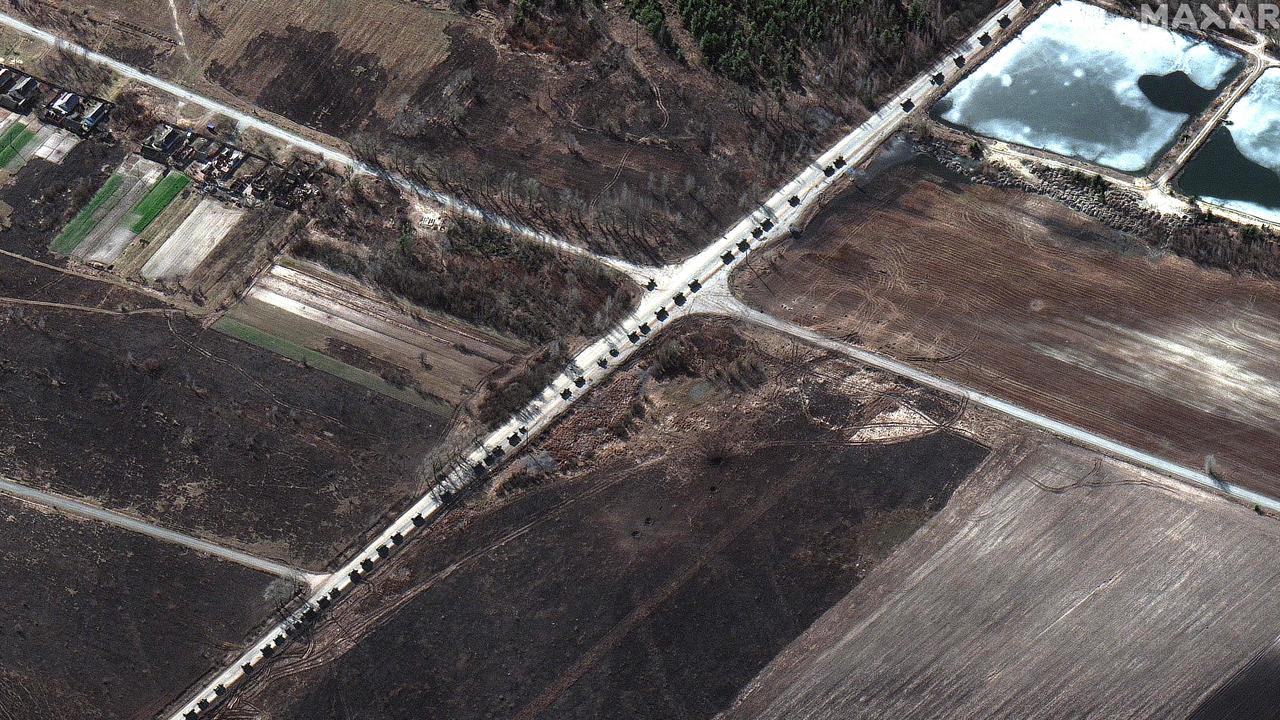
Western analysts say Russia’s invading forces have become bogged down – but warn that the early failures could lead to a frustrated Moscow deciding to unleash all its power on Ukraine.
Mr Putin’s comments on Thursday did nothing to dispel that fear.
The Russian President insisted the invasion was “going to plan” following comments from some US authorities the Russian force had not attained the goals it had set for itself ahead of crossing Ukraine’s frontier.
The Pentagon believes a Russian plan to quickly seize the two largest cities, Kyiv and Kharkiv, has faltered because of “creative” resistance from Ukrainian troops and the Russians’ own fuel and logistical support issues.
“They have not achieved what we believe they intended to achieve by day four. So in many cases, they’re behind schedule,” the defence official said.
“We don’t know if it’s a failure in planning. We don’t know if it’s a failure in execution,” the official said.
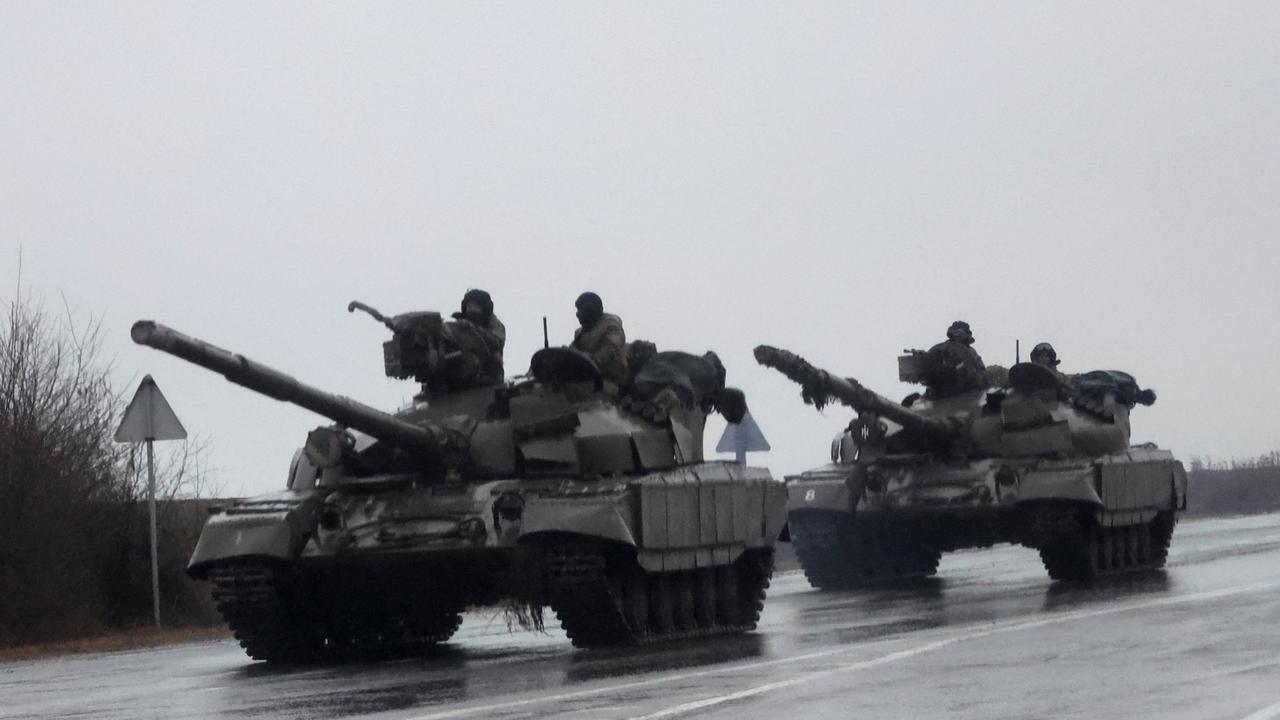
Mr Putin insists Russia is rooting out “neo-Nazis”, adding in televised comments that he “will never give up on [his] conviction that Russians and Ukrainians are one people”.
French President Emmanuel Macron, who spoke to Mr Putin on Thursday, believes “the worst is to come,” an aide said.
However, the Ukrainian President showed no sign of backing down, vowing that Russia would learn the meaning of the word “reparations” and calling on the West to up its military assistance.
“If we are no more, then, God forbid, Latvia, Lithuania, Estonia will be next,” Mr Zelensky told a news conference, adding that direct talks with Mr Putin were “the only way to stop this war”.
More Coverage
During unsuccessful peace talks on Thursday, the two countries did however agree on a humanitarian corridor for terrified civilians to flee.
It was not immediately clear how any corridor will work, but the urgency was underscored by growing fears that, as Russia captured its first major city and dozens more people died, the fighting could be about to enter a deadly new phase.
– with AFP



